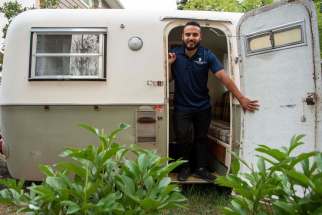Bowled over… by Bolers Small, Winnipeg-designed camper surging in popularity, with sales and rentals happening as soon as they pop up
Read this article for free:
or
Already have an account? Log in here »
To continue reading, please subscribe:
Monthly Digital Subscription
$0 for the first 4 weeks*
- Enjoy unlimited reading on winnipegfreepress.com
- Read the E-Edition, our digital replica newspaper
- Access News Break, our award-winning app
- Play interactive puzzles
*No charge for 4 weeks then price increases to the regular rate of $19.00 plus GST every four weeks. Offer available to new and qualified returning subscribers only. Cancel any time.
Monthly Digital Subscription
$4.75/week*
- Enjoy unlimited reading on winnipegfreepress.com
- Read the E-Edition, our digital replica newspaper
- Access News Break, our award-winning app
- Play interactive puzzles
*Billed as $19 plus GST every four weeks. Cancel any time.
To continue reading, please subscribe:
Add Free Press access to your Brandon Sun subscription for only an additional
$1 for the first 4 weeks*
*Your next subscription payment will increase by $1.00 and you will be charged $16.99 plus GST for four weeks. After four weeks, your payment will increase to $23.99 plus GST every four weeks.
Read unlimited articles for free today:
or
Already have an account? Log in here »
Hey there, time traveller!
This article was published 05/08/2021 (1592 days ago), so information in it may no longer be current.
In January, Jorge Torres bought a Boler trailer — a little fiberglass egg on wheels — and brought it to his fiancée’s house to surprise her.
“The opposite of a good surprise is what she had,” laughs Torres, a 30-year-old contractor. “She says, ‘What is this garbage?’”
That garbage, Torres calmly explained, was a cult classic, a lightweight, ovoid escape pod first designed in Winnipeg in 1968, of which only 10,000 were manufactured, making it a valuable commodity and a retro, futuristic objet d’art with room for four sleepers. It was in pretty rough shape: scuffed up, beat up, used. It looked as though it needed a fresh coat of everything.
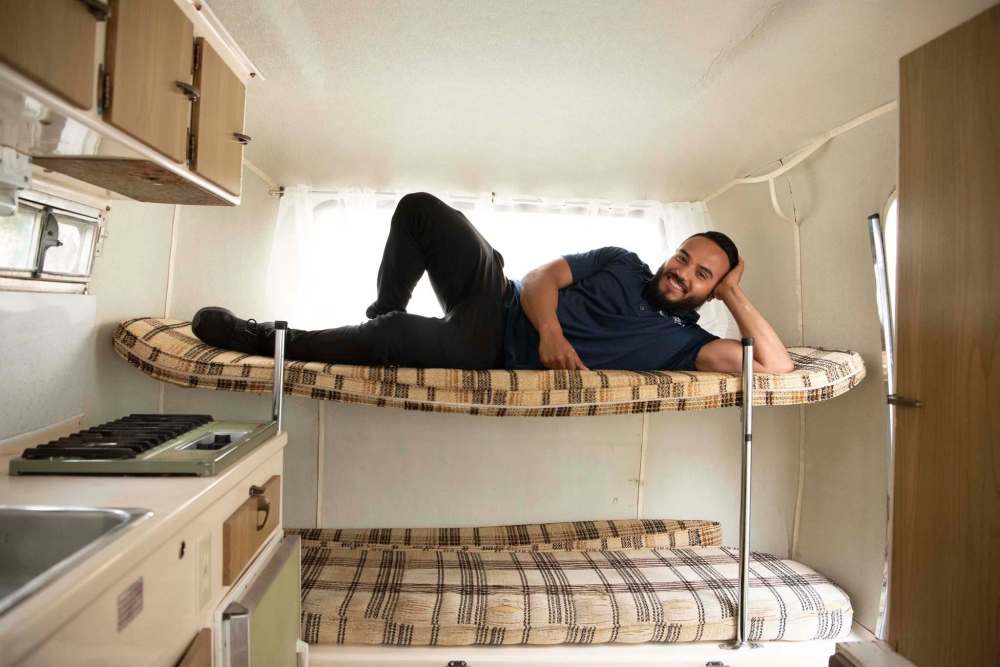
So to ease his fiancée’s worry, Torres, who had a rough year business-wise owing to the pandemic, found some images of refurbished models. “I’m telling you, I can fix it up and make it look really cool, even nicer than this,” he said, saying they could rent it out. There was a market, and a growing one at that, for camping and seeing the great outdoors after a year-plus spent indoors. She started to come around.
A month later, they bought their second, then came the third, the fourth, the fifth, the sixth, the seventh, the eighth, and the ninth. Five have been remodelled, and Torres came through as promised: on the outside, the Bolers look as good as or better than new, and on the inside, they look like they came straight out of a Pinterest board or the latest issue of Dwell on a stylish boomer’s or aspirational millennial’s coffee table.
When the trailers were posted online to rent on Facebook Marketplace, Torres was inundated with inquiries, with each renovated Boler having been rented out every weekend since. “I knew people would be interested, but I can’t honestly say I thought it would be like this,” he says.
That’s Sharon McComas’ thinking exactly. She and her friend Susan Hopps renovated their 1973 Boler over four months last year, with some help from their husbands, as a “little project” before deciding to suss out the market and rent it out. (The friends share another Boler for personal use, bought after hearing a wolf’s snarl on a camping trip in 2016).
“We had no expectations,” says McComas. “We put it up and within an hour had 60 messages. I think two days later, the first renters” — who pay $75 per night — “took it out.” Thirty have followed suit.
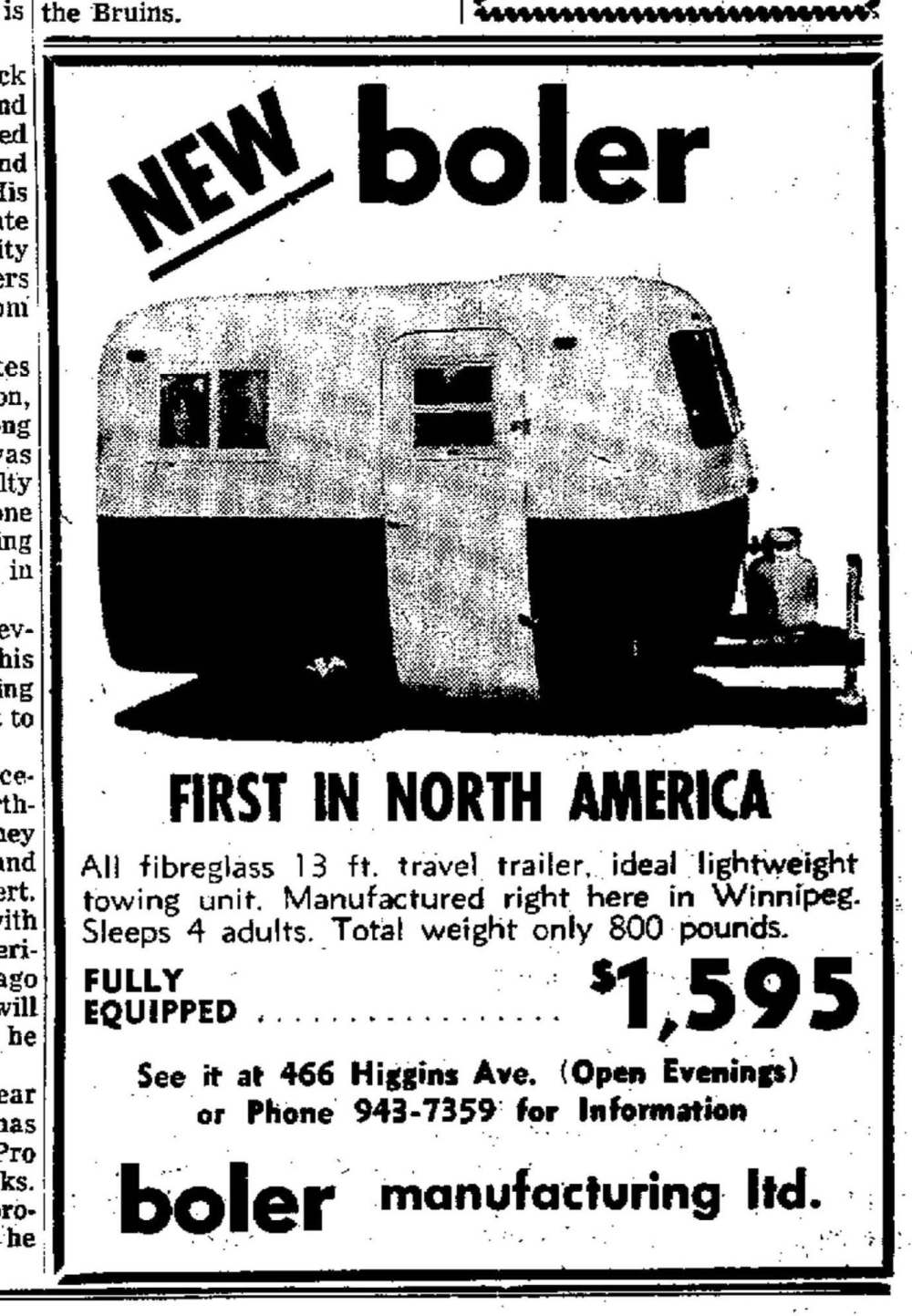
People, McComas says, really love their Bolers, especially in Winnipeg.
The trailer’s origins are in the Manitoba capital, where in the late 1960s a man named Ray Olecko went camping or hunting with his family in an old canvas tent, with many nights rained or snowed out, according to a detailed history of the Boler compiled by Tom McMahon, a local Boler enthusiast and the former general counsel for the Truth and Reconciliation Commission of Canada.
Olecko had the idea in his head — reportedly drawing a rudimentary circle on a piece of paper, as rough a rough draft as could be — but he needed a skilled hand to make it a reality, so he approached a colleague, Sandor Dusa, who worked with him at Winnipeg’s Structural Glass, to develop a wooden mockup and later, a master mould to serve as the template for fiberglass trailer.
Dusa had migrated to Canada from Hungary in 1956, the year of the Hungarian revolution, and in his native land worked as a cabinet maker, with a mechanical mind and an innate understanding of carpentry. With no specs, aside from the rough sketch, Dusa got to work, and soon, the duo had collaborated on a 13-foot, 800-pound prototype. It was light enough and small enough for a common sedan to tow, with little expertise or set-up needed, and thanks to the insulated fiberglass, it was also leak-proof and rust-proof: built to last.
Their families served as product testers, and over time, Olecko promoted and Dusa tinkered, before in June 1968 setting up a plant on Higgins Avenue, mortgaging their homes and taking out bank loans to raise $5,000 and start their company, Boler Manufacturing Ltd.
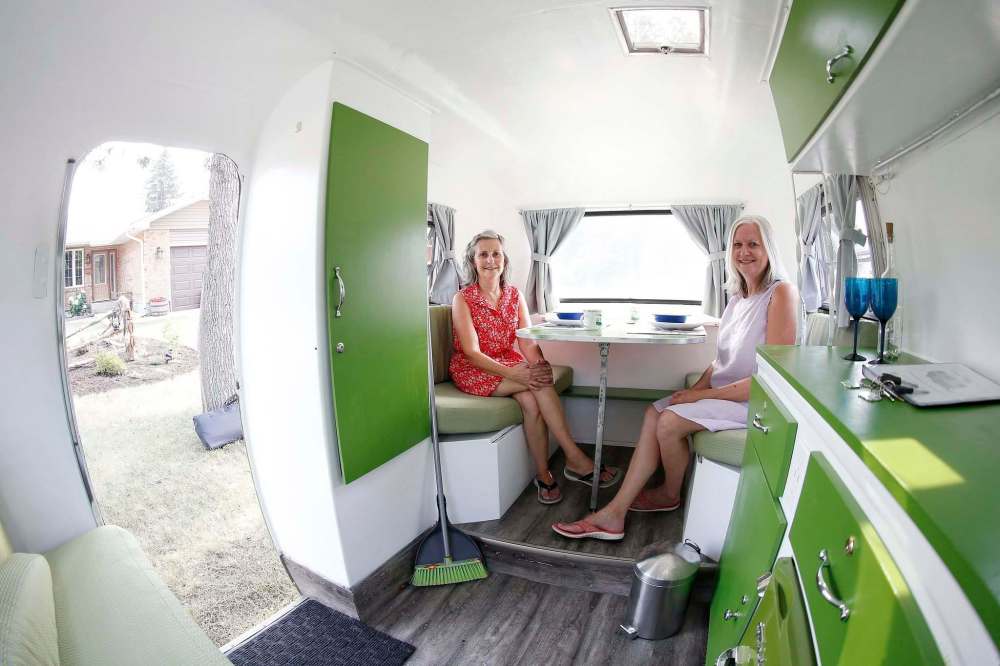
The first ads for Bolers appeared in the Free Press in July, selling for $1,495 (an ad from August, 1968, above, shows a price of $1,595). By 1969, nine Bolers per week were being manufactured at a larger warehouse on Dufferin to meet heavy demand, Olecko told the Free Press, and the Boler was awarded a Manitoba Design Award. (Dusa, a private man, was rarely if ever quoted, and routinely turned down interview requests about the Boler, which is why Olecko’s name tends to surface more in early and subsequent media coverage).
By 1971, Olecko and company had negotiated franchised manufacturing rights not only in Ontario and Alberta, but in the United States, striking a deal with Kansas-based conglomerate Elenor International to start production at three plants in northern states. In 1973, with production in full swing in Winnipeg as well as the other plants, Olecko, Dusa and Krieg sold their shares in the company to businessman Jim Pattison, per McMahon’s history.
“We’re the only company in North America producing fibreglass trailers,” Olecko said in 1971. “I wouldn’t be surprised to see our idea revolutionize the trailer industry.”
“We knew right from the beginning that we had a winner,” he said.
The last Boler was manufactured in 1988 in Midhurst, Ont., with most enthusiasts saying about 10,000 were made: the limited number of Bolers manufactured, along with their simplistic design, low maintenance and long-lasting materials can be attributed as reasons for their original popularity as well as their enduring value.
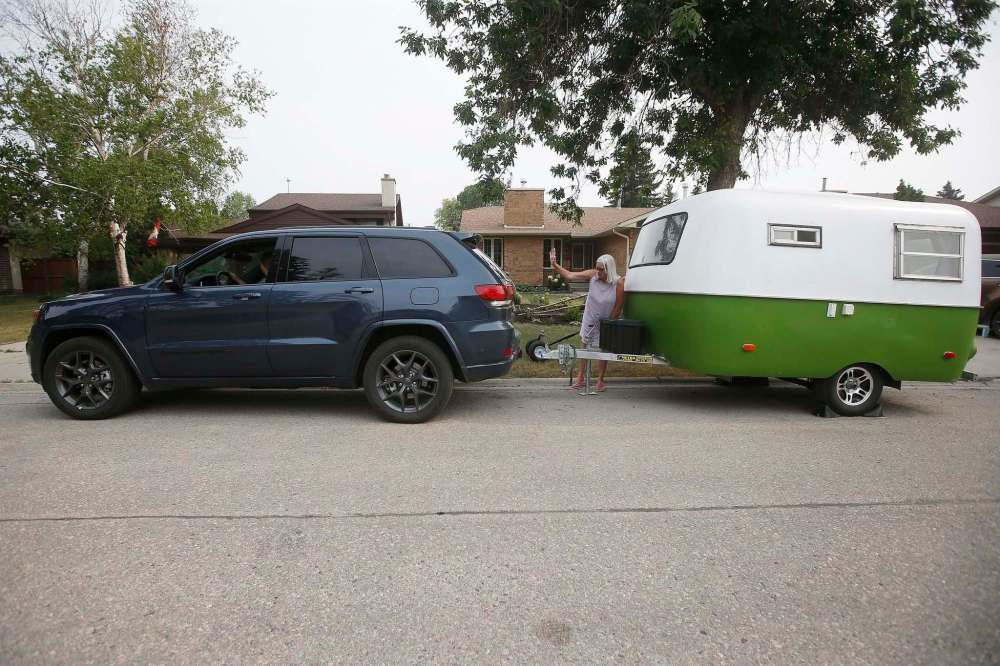
“They don’t leak. They’re extremely light. They’re retro-looking. As soon as they’re put on Kijiji, they’re as good as sold,” says Doug Kendel, a salesperson at GNR Camping World RV Centre. A decade ago, a well-maintained one sold for $3,500 or so. “Now, that’s what wrecks are going for.”
“There’s been a subculture of lightweight fiberglass trailer enthusiasts really for 50-odd years,” McMahon says. “I think COVID has dramatically increased it.”
Part of that has to do with the increased verve for local tourism and the enthusiasm for camping in general, which subsequently means finding bookable campground space is difficult. McMahon says many boomers no longer want to deal with tent set up or inclement weather, and neither do novice campers put off by the prospect of a bumpy sleep, mosquito bites, or a leaky nylon roof.
“As travel opens up, glamping is helping ‘indoorsy’ families get outside,” declared National Geographic in April.
Dale Podaima, a Boler owner in Winnipeg for 25 years, saw ads for rentals in July and decided to put her 1973 model, nicknamed ‘Peace,’ up for rent. “Within a day, I had it booked for three weeks,” she says. The only reason there are any gaps in her calendar, she says, is that camping spots, like Boler trailers, are such a hot commodity.
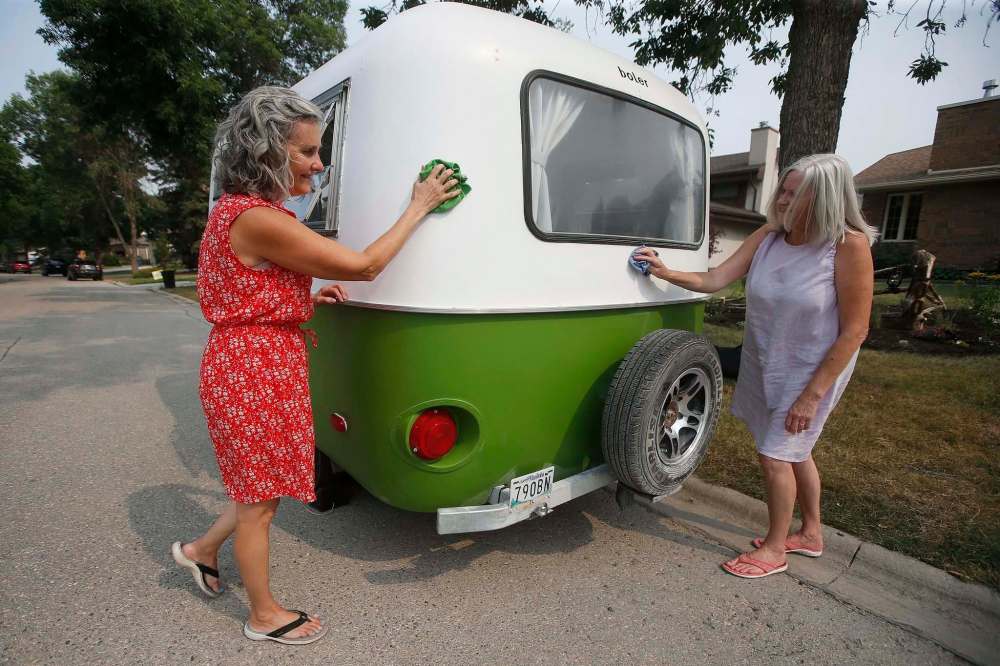
For Torres, there is no concern that the popularity of his fleet of rentals will be sapped. He’s confident his renovations fit the needs of a wide and growing range of consumers. Not sounding unlike Ray Olecko, he says his models, renting for $75 to $90 per night, have staying power; he wants to buy even more, and plans to expand his company, My Little Boler, in the new year.
“Camping has been popular way before the pandemic, and if anything, I hope we have all learned that we need to get outside and explore more,” he says.
He’s received generous offers to buy the renovated models. But his fiancée has changed her tune since the first one showed up on her driveway in January.
“Now,” Torres says, “she won’t let me sell them.”
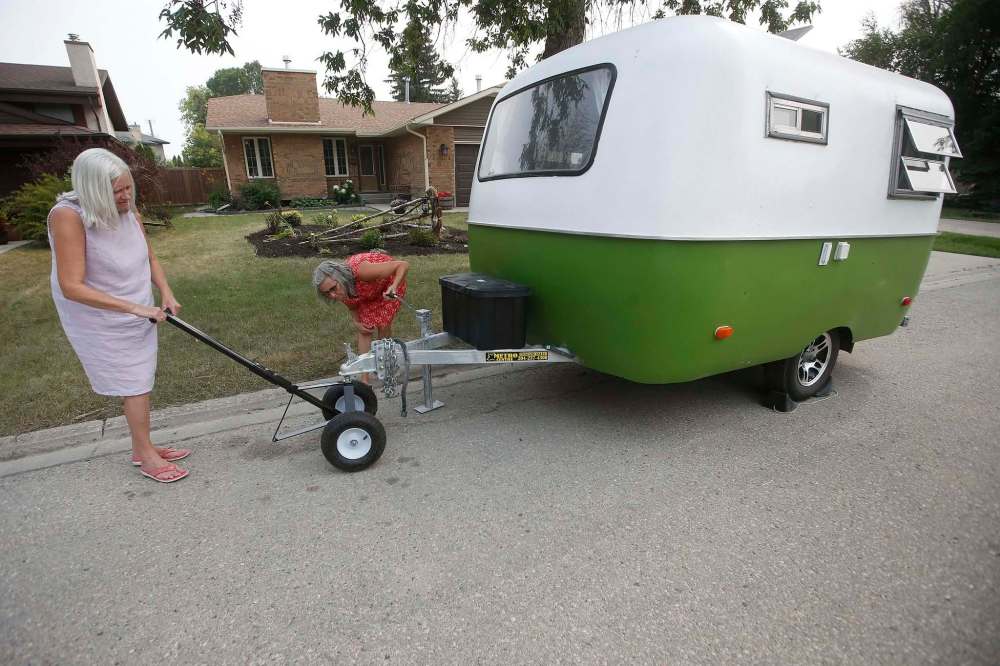
ben.waldman@freepress.mb.ca

Ben Waldman covers a little bit of everything for the Free Press.
Our newsroom depends on a growing audience of readers to power our journalism. If you are not a paid reader, please consider becoming a subscriber.
Our newsroom depends on its audience of readers to power our journalism. Thank you for your support.
History
Updated on Friday, August 6, 2021 5:24 PM CDT: Updates with more information about Sandor Dusa's contribution



